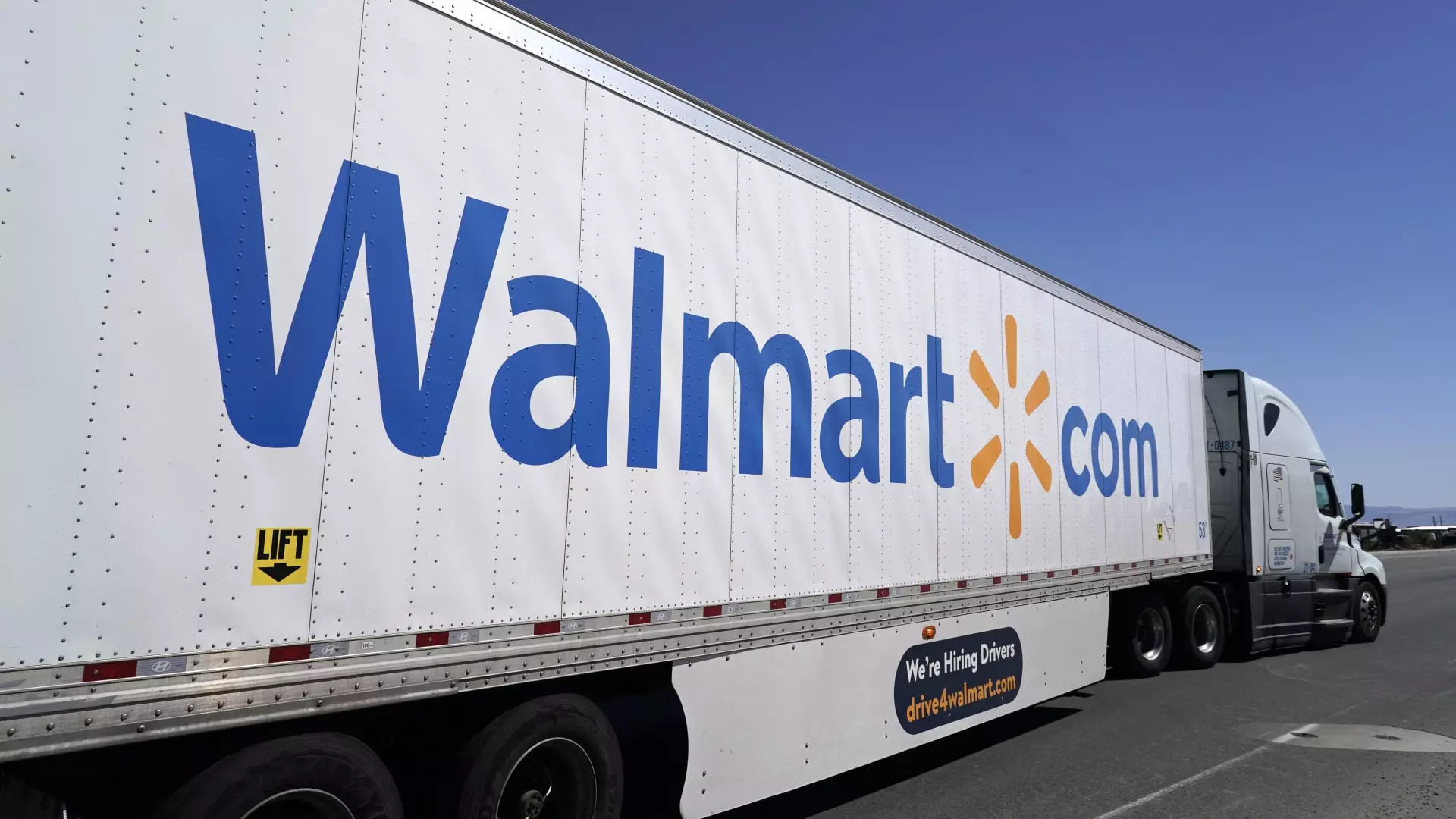In a significant legal move, the Consumer Financial Protection Bureau (CFPB) has filed a lawsuit against retail giant Walmart and the work-scheduling platform Branch Messenger. This complaint sheds light on serious allegations concerning the management of payment accounts for delivery drivers, raising crucial issues regarding workers’ rights and corporate accountability. The CFPB’s claims underscore the intersection of employment practices and fair financial management in the rapidly evolving gig economy.
The controversy centers around Walmart’s Spark Driver Program, a platform designed to streamline the scheduling and delivery processes for gig workers, specifically delivery drivers. Since its inception in 2021, allegations have surfaced that Walmart and Branch Messenger coerced over a million drivers into using substandard and costly deposit accounts—termed “Branch accounts”—for receiving their paychecks. The CFPB contends that these drivers were not only misled about the implications of using such accounts but also threatened with termination for opting out.
The core of the complaint revolves around the assertion that these accounts were poorly managed and laden with unjustified fees. In fact, the CFPB claims that drivers collectively incurred more than $10 million in what they term “junk fees.” Such economic exploitation serves as a stark reminder of the potential vulnerabilities gig workers face—often caught in a web of corporate convenience at the expense of their financial well-being.
Rohit Chopra, the CFPB Director, articulated the broader implications of the lawsuit in a press release. He emphasized that it is illegal for companies, especially those as influential as Walmart, to impose payment methods that detract from workers’ earnings. Such practices not only jeopardize the financial stability of employees but also represent a significant ethical lapse in the responsibility that corporations have towards their labor force.
As the gig economy burgeons, the conversation surrounding workers’ rights and fairness in payment methods becomes increasingly pertinent. Many gig workers often do not have the protections associated with traditional employment, leaving them susceptible to exploitation by the very companies they work for. The rapid growth of platforms such as Walmart’s Spark Driver Program exposes these systemic vulnerabilities, raising questions about corporate ethics, accountability, and transparency.
In a rapid rebuttal to the CFPB’s lawsuit, Walmart has dismissed the claims as exaggerated and fundamentally flawed. They argue that the CFPB did not afford them a fair chance to present their case during the investigation, a concern that speaks to the nature of regulatory scrutiny and compliance. Their response highlights a critical debate surrounding regulatory oversight—balancing consumer protection with corporate rights.
Similarly, Branch Messenger has voiced strong disagreement with the CFPB’s allegations, asserting that the lawsuit misrepresents the facts and omits essential context. This pushback from both companies illustrates the complexity of navigating legal challenges in an increasingly regulated financial landscape.
This legal battle is not an isolated incident but part of a broader trend of the CFPB taking action against companies that mishandle consumer financial accounts. Previous actions against firms like Comerica Bank and major players in the payments sector expose a systemic issue within corporate governance—particularly in how financial products are administered and communicated to consumers.
Furthermore, as digital payment systems gain traction, the associated risks and fraudulent activities have also increased. The CFPB’s scrutiny of various banking institutions, including major names such as JPMorgan Chase and Bank of America, further underlines the necessity for corporate responsibility in ensuring consumer protection and access to fair financial services.
As gig economy structures become more embedded in the fabric of the workforce, the need for rigorous ethical standards and practices cannot be overstated. The ongoing lawsuit against Walmart and Branch Messenger serves as a pivotal moment that may lead to systemic changes in how payments and accounts are managed for gig workers. It shines a spotlight on the ethical obligations companies hold and the potential consequences of neglecting these responsibilities.
This case is a call to action for corporations to remain vigilant in their practices, ensuring that the rights and dignity of their workers are upheld. Only through accountability and transparency can we hope to foster a fairer environment in an increasingly gig-oriented job market.

